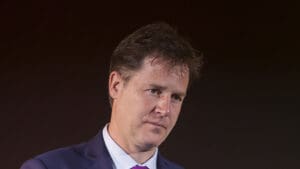In today’s fast-changing world, careers rise and fall with the speed of technology. Few leaders in education saw this shift coming as clearly as Pures College of Technology.
By focusing on emerging industries, practical learning, and creativity, the college has turned big ideas into real opportunities for its students.
“We always asked ourselves a simple question,” a Pures College representative shared. “Are we preparing students for yesterday—or for tomorrow?”
The Early Vision: Preparing for Jobs That Don’t Exist Yet
When Pures College first shaped its programs, the aim was clear. The world was already moving toward automation, renewable energy, artificial intelligence, and biotechnology. Traditional approaches weren’t enough. Students needed an education that looked ahead.
This forward vision meant taking risks. Updating faculty expertise. Rethinking curriculum. Predicting which industries would grow and which would fade.
“It was a challenge,” the representative admitted. “But we believed students deserved more than just skills for today. They deserved a foundation for the future.”
Understanding Emerging Industries
The leadership at Pures understood something simple but powerful: industries like cybersecurity, AI, and biotech would reshape the global economy. They designed courses that placed students directly in the middle of these transformations.
Labs, workshops, and collaborations with professionals became central to the experience. Students weren’t just learning theories—they were applying them in ways that matched the pace of change outside the classroom.
“When students leave us, they’ve already worked with the tools shaping the future,” said the representative.
STEM at the Core, but Not the Whole Story
Pures College put science, technology, engineering, and math at the heart of its programs. But they also saw the need for creativity. Courses in the arts and humanities were woven into the framework.
This mix gave graduates something unique. They could write code, but they could also explain it. They could run data models, but they could also imagine new uses.
“The biggest breakthroughs happen when you bring logic and imagination together,” the representative explained.
Building a Curriculum That Evolves
One of the toughest parts of running an education program in a shifting economy is keeping courses up to date. Pures College tackled this head-on.
Classes are reviewed and refreshed regularly. Digital communication, data literacy, and automation became baseline skills for every student—no matter their field of study. Partnerships with tech companies provided real-world projects that kept lessons relevant.
“A textbook from five years ago may already be out of date,” the representative noted. “We have to keep moving if we expect our students to keep moving.”
Entrepreneurial Thinking and Innovation
The leadership at Pures knew that not every graduate would join a company. Some would create their own. That’s why entrepreneurship became part of the college culture.
Courses in innovation management and startup strategy showed students how to test their ideas. Incubators and accelerators allowed them to try those ideas in the real world.
“You can’t always wait for someone to hand you a job,” the representative said. “Sometimes, you have to build it yourself.”
Partnerships That Create Opportunity
The bridge between education and industry can be wide. Pures closed that gap with partnerships across tech, biotech, and energy. These collaborations gave students access to internships and apprenticeships that often turned into full-time careers.
It also provided students with something equally valuable: professional networks. By graduation, they weren’t just students—they were insiders in growing industries.
“We didn’t want them to just read about industries,” the representative explained. “We wanted them to step into them before they left us.”
The Human Side: Soft Skills for a Digital Age
While the programs leaned heavily on technology, the college also placed weight on soft skills. Communication, adaptability, and resilience were seen as just as critical as coding or data analysis.
Workshops and seminars taught leadership in digital transformation, teamwork across cultures, and strategies for lifelong learning.
“The world is unpredictable,” the representative said. “If you can adapt and communicate, you’ll thrive no matter what changes.”
Challenges and Lessons Learned
The road was not simple. Faculty had to constantly update their knowledge. Predicting industry shifts came with risk. Ensuring every student had access to modern tools required resources and planning.
Still, the commitment remained steady.
“It’s not about avoiding challenges,” the representative said. “It’s about meeting them head-on so students can move forward with confidence.”
A Legacy in Progress
The career of Pures College of Technology is still unfolding. But the results are clear. By turning big ideas into structured programs, the college has helped students step into industries that once seemed out of reach.
Its story is less about a single institution and more about a mindset—an approach that sees change not as a threat, but as a chance to lead.
As the representative summed up:
“We prepare students not just for jobs that exist, but for industries they’ll help create. That’s what leadership in education means to us.”
Read more:
Pures College of Technology: Turning Ideas Into Tomorrow’s Careers







